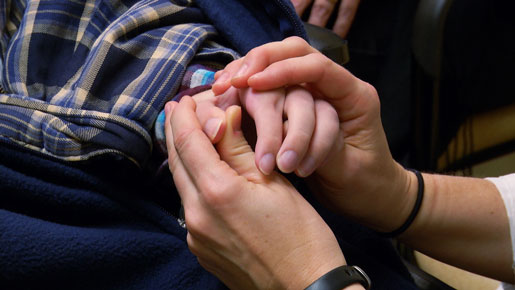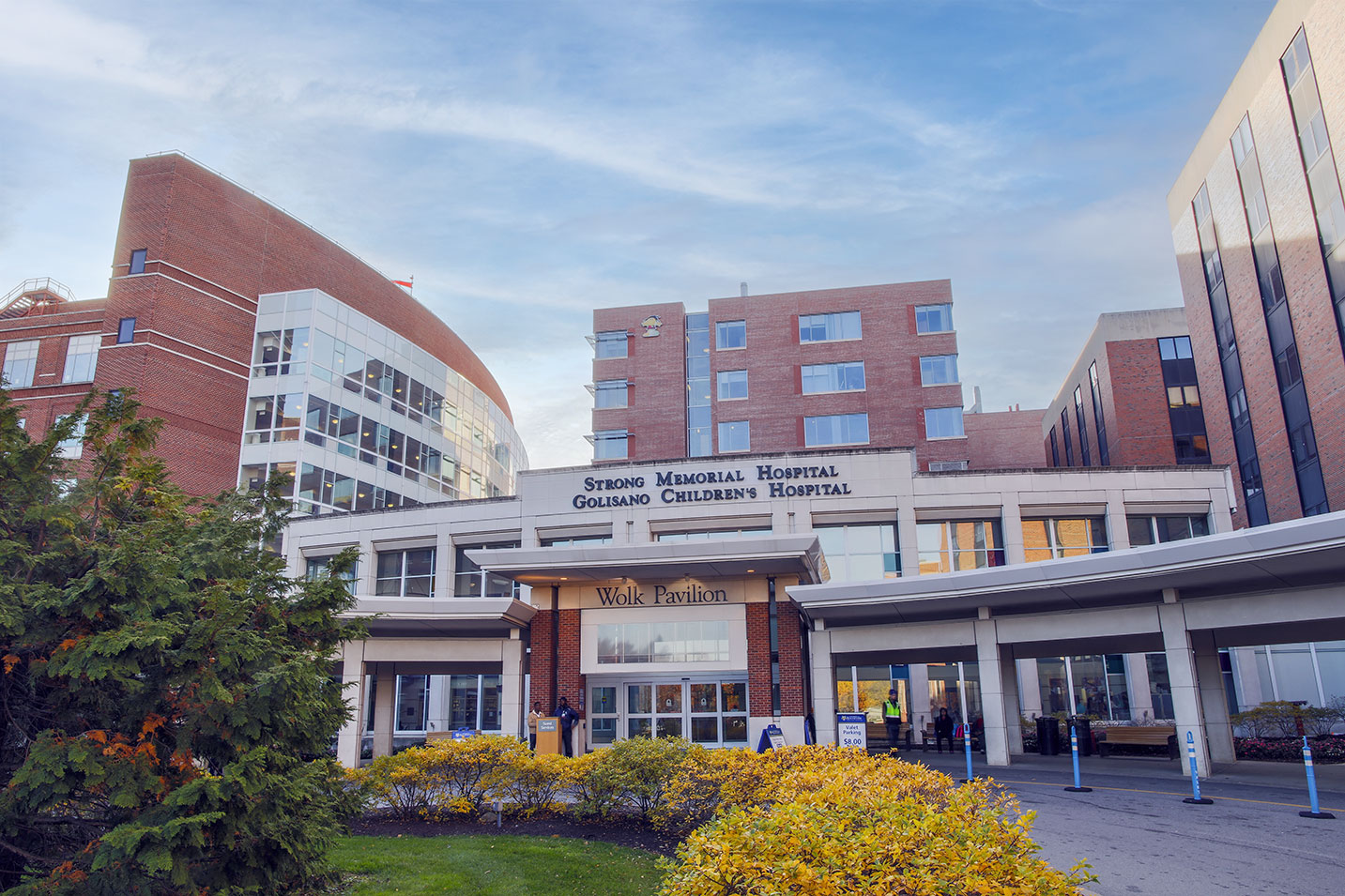Myasthenia Gravis
Make Appointments & Get Care
What is Myasthenia Gravis?
Myasthenia Gravis is a chronic autoimmune neuromuscular disorder that causes fatigable weakness. Congenital myasthenic syndromes and Lambert-Eaton Myasthenic Syndrome (LEMS) are different but related disorders. Our goal is to develop a highly personalized approach to treatment, with access to the most up to date therapies and research opportunities to our patients.
What Are the Symptoms of Myasthenia Gravis?
Myasthenia gravis is considered a “snowflake” disease in that symptoms can vary and fluctuate based on the individual.
The most common symptoms include:
- Droopy eyelids
- Double vision
- Slurring of speech
- Difficulty chewing and swallowing
- Breathing problems
- Difficulty holding up the head
- Weakness of the arms and legs
- Fatigue
UR Medicine's Treatments for Myasthenia Gravis
We are a specialized, multidisciplinary team focused on providing compassionate and cutting edge care for patients with myasthenia gravis. We are a recognized “Partners in Care” clinic by the Myasthenia Gravis Foundation of America.
Our services and facilities include:
- Initial consultation or second opinion together with follow-up care as primary managing team or in cooperation with local clinical care teams
- On-site electrodiagnostic testing, including Repetitive Nerve Stimulation (RNS), electromyography (EMG) and single fiber EMG
- Robust clinical research and clinical trial opportunities
- Neuro-ophthalmology, physical therapy, and genetic counseling on site
- Rare antibody testing, muscle biopsy and pathology interpretation
- Therapeutic plasma exchange
- On-site infusion center
Treatment
Our team of experts specialize in what’s needed to care for pediatric and adult neuromuscular disease. We coordinate care tailored to the needs of patients and families.
With treatment, most can expect to lead normal or nearly normal lives. Some cases may go into remission temporarily, and muscle weakness may disappear so medications can be discontinued. In a few cases, the severe weakness of myasthenia gravis may cause respiratory failure, which requires immediate emergency medical care.
Treatment will depend on your symptoms, age, general health, and severity of the disease. It may include:
- Medicine—Anticholinesterase medicines, steroids, or medicines that suppress the immune system’s response
- Thymectomy—a surgical removal of the thymus gland
- Plasmapheresis—a procedure that removes abnormal antibodies and replaces the blood with normal antibodies
- Immunoglobulin—a blood product that is given intravenously (by IV) to decrease the immune system’s attack on the nervous system
- Infusions of monoclonal antibody—includes eculizumab and others which are effective for people with the more common form of MG
- Physical therapy
What Sets Us Apart?
Our team of experts specialize in what’s needed to care for patients living with neuromuscular junction disorders like myasthenia gravis. We coordinate care tailored to the needs of patients and families utilizing a multidisciplinary approach and cutting edge therapies.
University of Rochester is a Tier 1 research university. As a national and international leader for translational and clinical research, we provide access to investigator-initiated clinical and translational research and industry-sponsored clinical trials for patients living with myasthenia gravis.
Locations
View All LocationsWe serve you in the Rochester metropolitan area and surrounding region.
View All Locations2 locations
Ambulatory Care Center at Strong Memorial Hospital
601 Elmwood Avenue, 1st Floor
Rochester, NY 14642
Clinton Crossings, Building C
919 Westfall Road, Suite 210
Rochester, NY 14618
Additional Resources
Support the Neuromuscular Disease Center
Your donation, no matter the size, brings us closer to a cure for myasthenia gravis and other autoimmune neuromuscular disorders. We work to support patients on both a local and national scale.

